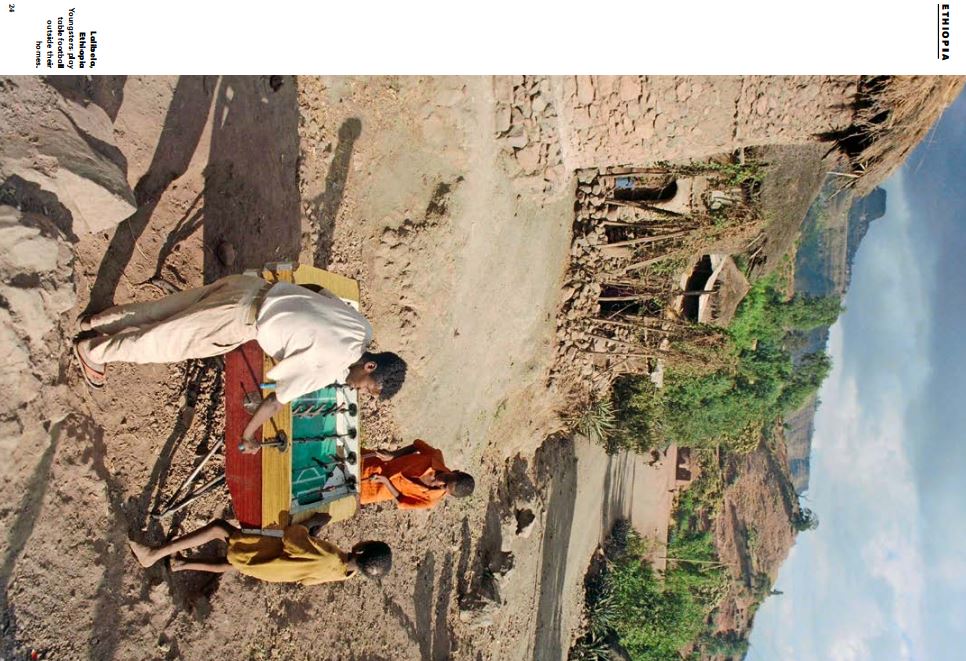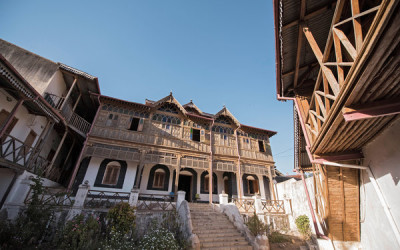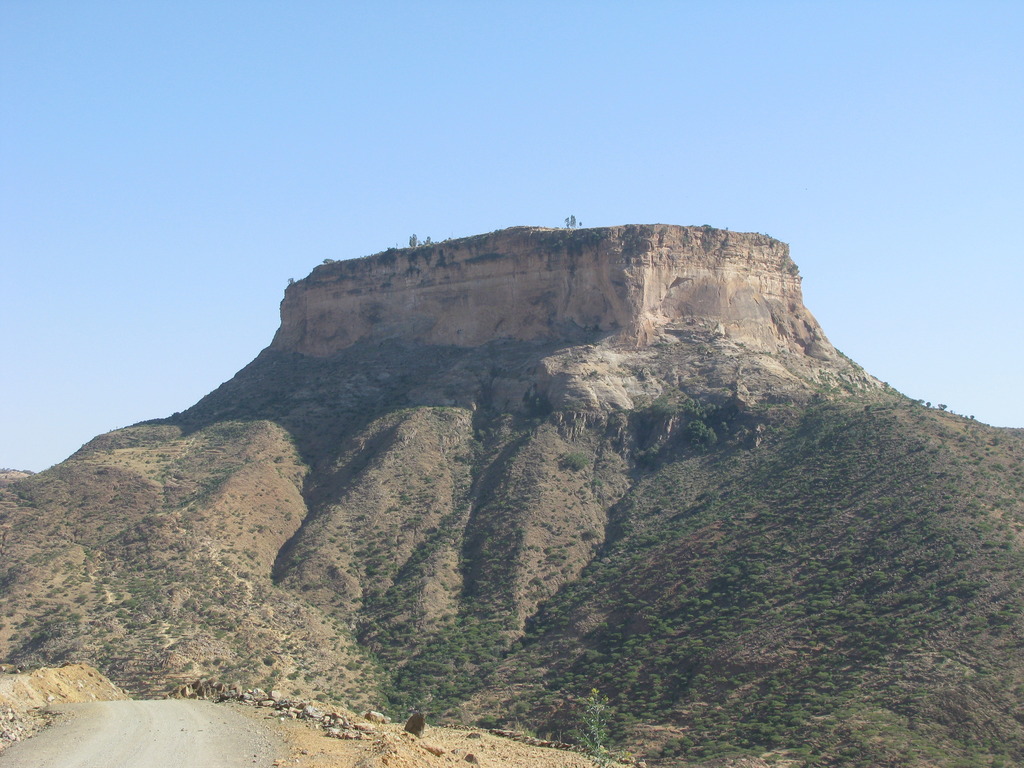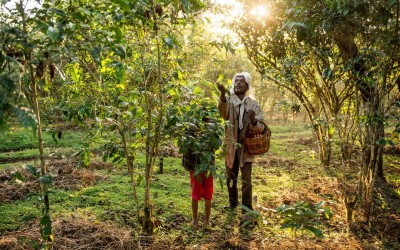Many years have passed since Ethiopia last once won the Africa Cup of Nations. The FIFA Weekly explores the history of a nation that has had to fight hard to establish its footballing identity
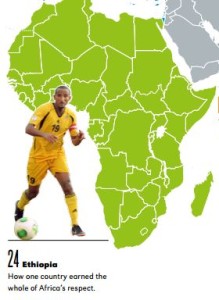
The roots of Ethiopian club Saint George can be traced back to
the era of colonial rule, when the entire African continent was
filled with the outposts of European countries whose armies
fought the indigenous population in a grab for land and natural
resources. It was against this backdrop that the club was founded
by Greek and Armenian settlers in the capital, Addis Ababa,
where it quickly became the country’s most formidable side. Many
attributed the club’s potency to the support of the patron saint that
gave it its name.
 These were difficult times. It was 1935 and Ethiopia had just been
These were difficult times. It was 1935 and Ethiopia had just been
invaded by Italy. Although young people had already begun to set up
football teams, they soon sought to emulate their European occupiers,
whose experience in the sport stretched back much further. Fascism had
other more immediate impacts on the country’s football; Ethiopian
teams were forced to change their names, while sides made up of local
players were separated from those consisting of Europeans.
This turn of events made the satisfaction all the greater when
Italian side Fortitudo Addis Ababa – composed exclusively of the
occupying power’s international players – faced Saint George in 1942.
The Ethiopians briefly exacted revenge for the oppression and violence
they had encountered by scoring four goals along the way – a
victory made all the more impressive when you consider that, unlike
their opponents, the local side were forced to play barefoot. On that
day Saint George became a symbol of national unity among the Ethiopian
people.
The club’s current captain and icon Adane Girma is well aware of the
power of the beautiful game. “I was born in Awasa and grew up with my
family in a suburb named Korem,” he explains. “I was the third of four
children, and my parents died when I was still a young boy. At school I
played football from an early age; throughout my life it has helped me to
remain strong and confident.” As well as leading his national team, the
29-year-old also coaches an under-18 side he founded, and speaks animatedly
of the passion shown by his players.
Enjoying life in Ethiopian football
 Adane has played for Ethiopia’s most successful team since 2007, winning
Adane has played for Ethiopia’s most successful team since 2007, winning
no fewer than five championship titles along the way. When asked
about the secret of his success, the all-rounder explains: “A footballer
has to show discipline. His most important role is to serve his team.”
He knows what he is talking about. Having originally played as a
defender, Adane was subsequently moved into a midfield role. He has
even been effectively deployed as a striker under some coaches, scoring
many times with both feet during his career. “I’ve never had a particular
position,” he laughs. “My club and national team coaches can use me
equally well in midfield or up front.”
The Ethiopian Premier League is made up of 14 teams who play each
other home and away in a format closely resembling that of most European
leagues, including the English championship from which it takes
its name. Saint George’s biggest rivals are Ethiopian Coffee, Debedit,
Sidama Buna, Mebrathail and Awasa Kenema in a league whose star
players include Dawit Fedaku, Michael Desta, Dawit Estifanos and Nigerians
Filip Aus and Samuel Salone.
Adane Girma has no complaints when it comes to the wages
earned by Ethiopian footballers. The father of two says that a player’s
average salary is very good compared to the national average. “With
more and more private companies investing in the sport, the life of a
professional footballer has improved considerably over the past few
years,” he explains.
Ethiopia currently sit 102nd in the FIFA world rankings, placing them
28th among African sides. Adane has already worn the green shirt, yellow
shorts and red socks of his national team 46 times, scoring eight
Petterik Wiggers
times along the way.
 Earning respect in Africa
Earning respect in Africa
One of these goals was scored during the second leg of their Africa Cup
of Nations qualifier against Sudan in October 2012 and sparked ecstatic
celebrations across Ethiopia. Needing to overcome a 5-3 first-leg
deficit, the Walias won 2-0 to secure a spot at the
African championship for the first time in 31 years.
The two names on the scoresheet that day were
Saladin Said – and Adane. “I’ll never forget that
moment,” the Saint George skipper says. “It was the
greatest of my career, not just because we scored
but also because I knew that this victory would
help our nation’s football to move forward. We
earned the respect of the entire continent. What’s
more, we shouldn’t forget what it meant for our country. Ethiopia is a
nation made up of different tribes and people of different faiths. Football
brings the whole country and all its people together. When the
national team plays, all Ethiopians unite to experience these wonderful
moments together.”
The East Africans were once a force to be reckoned with at the
Africa Cup of Nations, winning the 1962 tournament on home soil
after getting the better of the United Arab Republic (now Egypt) in
the final after extra time. That winning side included brothers Italo
and Luciano Vassallo, who were born to an Eritrean mother and an
Italian soldier during the Italian occupation. Luciano Vassallo later
coached the Ethiopian national team on several occasions.
A doppelganger at Juventus
Incidentally, Adane is also the subject of an entertaining anecdote. The
Italian press once noticed a striking resemblance between Ethiopia’s
current captain and Italy defender Giorgio Chiellini. Word quickly
spread, and the Ethiopian is now known as the Juventus defensive
stalwart’s doppelganger. “A journalist here in Ethiopia once told me
that we looked alike, but I didn’t realise then how right he was,” Adane
says. “It’s amusing and strange that two players
from different continents can look so similar. We
still haven’t come across one another, but I’d like to
meet him one day.”
